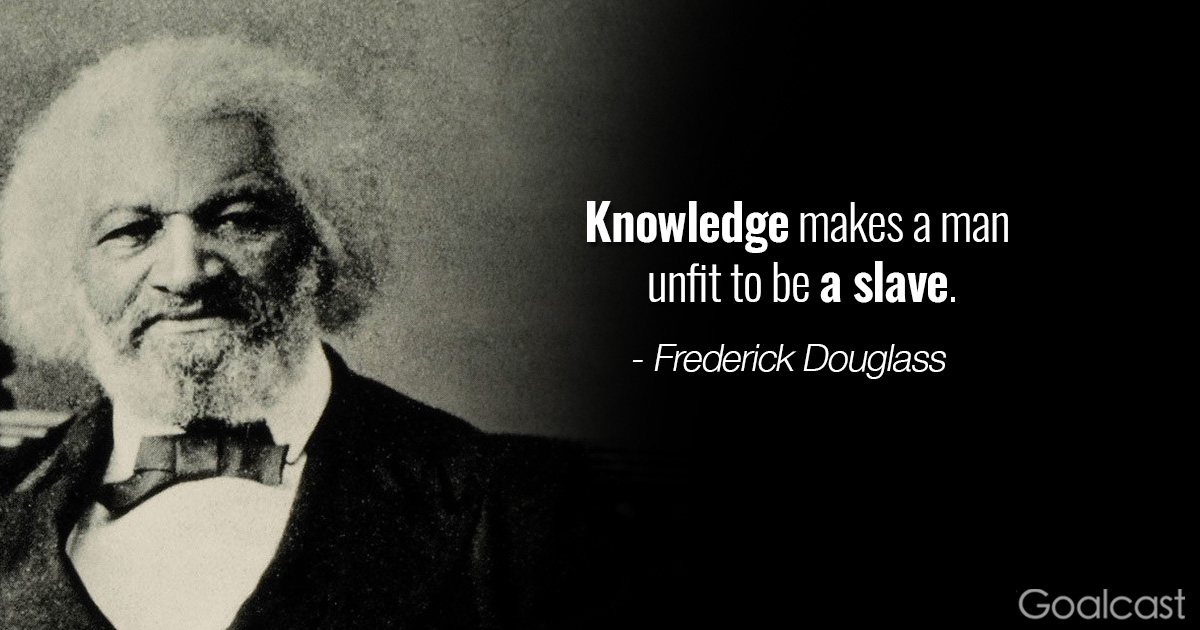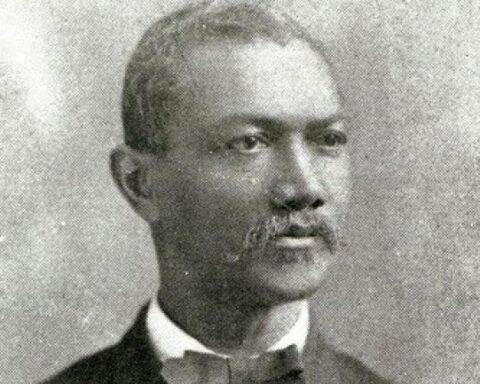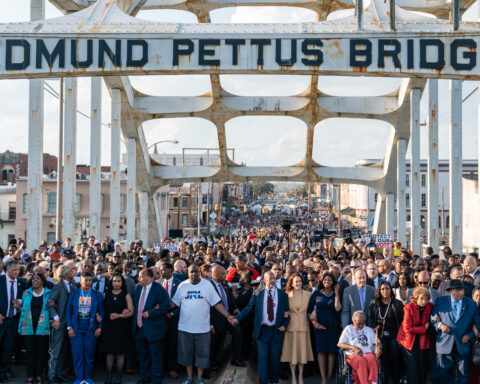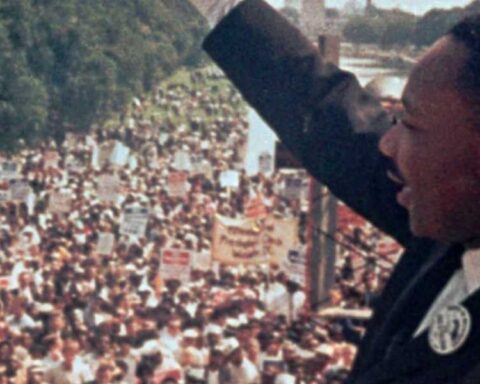By Nick Irvin
February is Black History Month in the United States. It’s a time for remembrance and reflection, as the country is reminded of the discrimination African Americans have endured and the continuous struggle against the remnants of slavery, segregation and racial legacy. Black History is the perfect way to begin to understand the question of race in American society today. To help clarify this topic, and in no particular order, here are ten of the most influential African Americans in history.
Martin Luther King Jr.
No single African American in history is perhaps as famous as Martin Luther King Jr., otherwise known as MLK. There is a federal holiday on the third Monday each January celebrated in his honor, and whole sections of textbooks are devoted to his civil rights activism in the 1950s and 1960s. A Baptist minister in the city of Montgomery by trade and a prominent civil rights activist, Martin Luther King made his mark by preaching nonviolent means of protesting the segregation of whites and blacks in the United States. MLK’s assassination at the hands of a white man in 1968 sparked riots and mourning across the world.

Photo: Workers’ Compensation Watch
Rosa Parks
Rosa Parks is best known for refusing to move to the back of a bus after the driver demanded she give her seat to a white passenger. While not the first person to refuse to obey the segregation laws in the United States, Rosa Parks was labeled as the “Mother of the Freedom Movement” following her bold disobedience and subsequent arrest. Like MLK, Rosa Parks was from Montgomery, and she and King together made great strides in procuring basic human rights for African Americans across the country.

Photo: Urban Ministries
Muhammad Ali
Born Cassius Clay in 1942, Muhammad Ali made his name in the sport of boxing, where he was one of the greatest heavyweight champions of all time. Ali’s best years were in the early 1960s, during which time he changed his name from “Cassius Clay,” which he associated with slavery, and adopted a new one, adopted from the Islamic tradition that symbolized a new black separatist movement in the United States, the Nation of Islam. Ali also gained status as a conscientious objector to the Vietnam War, which moved him further into the realm of left-wing activism and intersected race with the larger counterculture movement in the United States.

Photo: Eastern Daily News
Frederick Douglass
Frederick Douglass lived during the Civil War in the middle of the 19th century, which was fought over slavery and its role in American society. Douglass, a prominent abolitionist (somebody who was against slavery) and former slave himself, is best known for his seminal autobiography, Narrative of the Life of Frederick Douglass, an American Slave. In it, Douglass outlines his life as a slave and his subsequent escape, which proved instrumental to the abolitionist movement and the ultimate goal of ending slavery.

Photo: Goalcast
W.E.B Du Bois
W.E.B Du Bois made his name as an esteemed author, academic, and civil rights activist in the generation before Rosa Parks and Martin Luther King Jr. Du Bois was one of the founders of the NAACP, or National Association for the Advancement of Colored People, which was (and still is) one of the premier organizations for African American rights and activism. Du Bois wrote a collection of essays that exposed the hypocrisy of the Reconstruction era (the time immediately following the Civil War) and defended African Americans as victims of white racism, instead of the other way around.

Photo:Wikipedia
Jackie Robinson
Jackie Robinson was, like Muhammad Ali in the 1960s, one of the most influential sports figures of his day. In 1947, Jackie Robinson became the first African American to play for a Major League Baseball team, the Brooklyn Dodgers. This was the catalyst that broke baseball’s color barrier –– the idea that African American players couldn’t play in the top professional leagues, but only in the “inferior” Negro leagues. Jackie Robinson career spanned a decade, and his place in the annals of baseball history was solidified when his jersey number, 42, was “retired” by all MLB teams (meaning no player may ever use that number again) in 1997.

Photo: Wikipedia
Harriet Tubman
Born into slavery in 1822, Harriet Tubman was famous for her abolitionist and humanitarian efforts to help escaped slaves after escaping slavery herself in 1849. She served an important part of the so-called “Underground Railroad,” a secret path though slave-holding states for runaway slaves to escape to the north. Harriet Tubman was also known as “Moses,” in part due to her devotion to Christianity, and she helped scores of slaves find their freedom in the states north of the Mason-Dixon Line (the border between the Northern, non-slaveholding states and the Southern, or slaveholding states).

Photo: ShareAmerica
Sojourner Truth
Like Harriet Tubman and Frederick Douglass, Sojourner Truth was born into slavery but later escaped and became a prominent abolitionist and activist for women’s rights. And, like many such abolitionists, religion was a focal point of Sojourner Truth’s efforts. During the Civil War, she played a major role in recruiting African American soldiers to fight for the Union (northern states), which was pitted against the Confederacy (southern states).
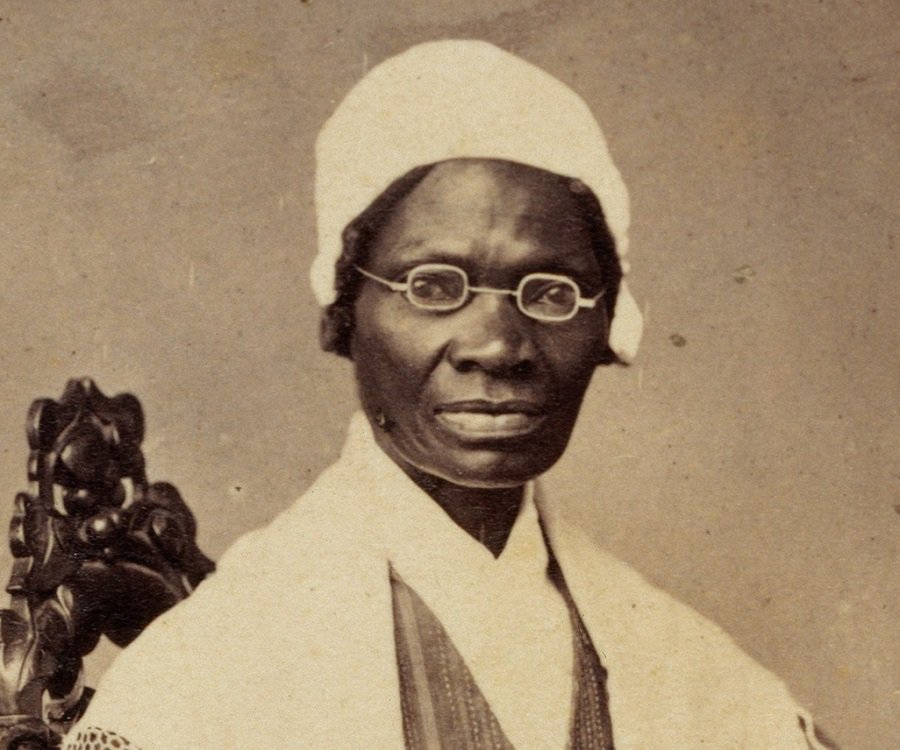
Photo: Famous People
Langston Hughes
Langston Hughes was an esteemed novelist and poet who made his mark during the Harlem Renaissance, a period African American cultural and artistic growth that took place in Harlem, New York. Langston Hughes’ first book of poetry, The Weary Blues, and subsequent works, helped outline the economic situation of lower-class African Americans. Hughes was a major influence on his contemporaries, which included Zora Neale Hurston and Wallace Thurman, among others.

Photo: The UCSB Current
Maya Angelou
Maya Angelou is one of the best-known African American authors, famed for her autobiographies. Her most influential autobiography, I Know Why the Caged Bird Sings, tells a coming-of-age tale that shows racism as it affected a young girl, and how it transformed her into the proud author she would later become. Maya Angelou worked with Martin Luther King Jr. and other civil rights leaders to put a permanent end to segregation.

Photo: Poetry Foundation

